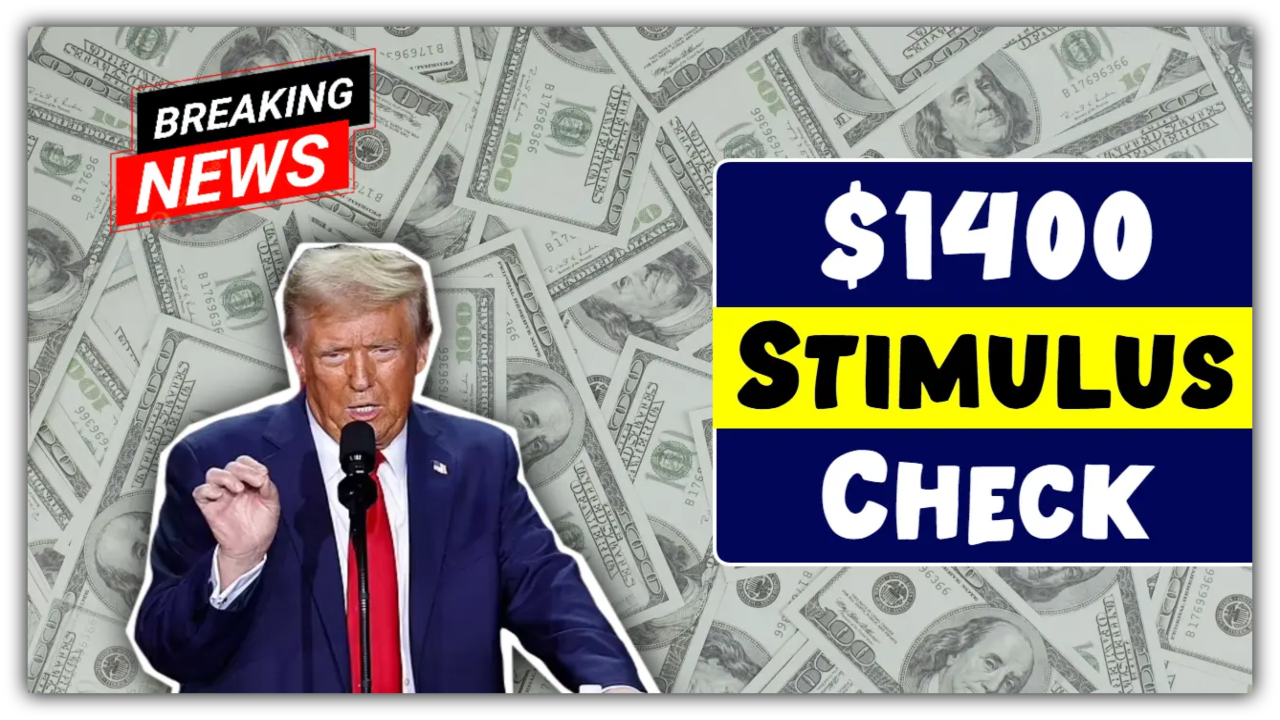$1,400 Stimulus Checks in 2025? The Truth No One’s Telling You!
You’ve probably seen the headlines or social media posts lately — stuff like:
“$1,400 4th Stimulus Check Coming in 2025!”
“Everyone’s Getting a New Stimulus – Are You Eligible?”
And naturally, that makes you stop and think:
“Wait… am I really getting $1,400 this year?”
Let’s take a breath and go through what’s actually happening. No fluff, no hype — just real info you can count on.
First, the Big One: No, There’s No New $1,400 Stimulus Check for Everyone in 2025
Despite what you might’ve read online, there is no new government-approved stimulus check going out to all Americans in 2025.
There’s no new federal program.
No recently passed law.
And no new round of checks being sent like what we saw during the pandemic.
If the government was truly giving out another $1,400 to everyone, you’d be hearing it everywhere — not just from a few viral TikToks or sketchy websites.
So What’s with All the Talk About $1,400 Checks?
Great question. There actually is a reason you’re hearing about $1,400 payments right now — but it’s being misunderstood.
Here’s the deal:
Some people are getting up to $1,400 from the IRS in 2025, but it’s not a new stimulus check. It’s money they were already supposed to receive back in 2021 — during the third round of stimulus under the American Rescue Plan.
In simple terms: it’s just catch-up payments for folks who missed out on their 2021 money.
Why Are People Getting That Money Now?
Because of something called the Recovery Rebate Credit.
Basically, if someone qualified for that third stimulus check in 2021 but didn’t get it — or didn’t get the full amount — they could claim it as a tax credit when they filed their 2021 taxes.
The IRS has recently reviewed old returns and found that some people never claimed that credit. So now, they’re automatically sending those payments out.
Think of it like a refund for something you were supposed to get years ago, and the IRS is just catching up now.
Who’s Eligible?
You might be eligible for this money if:
-
You were supposed to receive the third stimulus payment in 2021 (that was the $1,400 one).
-
You either didn’t get it, or didn’t get the full amount.
-
You didn’t claim it on your 2021 tax return.
And if you never filed a 2021 return at all? You still have time. You can file it now and claim the Recovery Rebate Credit, but you have to do it before the final deadline on April 15, 2025.

So, How Much Will People Get?
It depends. The max payment is $1,400 — but that’s only if you were eligible and never received anything.
If you got part of it back then, the IRS might just be sending you the remainder.
And if you already received the full amount back in 2021, you won’t be getting anything now. This isn’t a new benefit — it’s just fixing old mistakes.
When Are These Payments Going Out?
There isn’t a set date like there was with previous stimulus checks. These are being sent on a rolling basis, depending on when the IRS processes your return or catches the error.
Some people have already started receiving payments this year. Others might see it in the coming weeks or months.
The payment might come by direct deposit if the IRS has your info, or by paper check if not.
Is a New Federal Stimulus Still Possible in 2025?
Right now, there’s no new stimulus being discussed at the federal level. Nothing has been passed, and there’s no official proposal on the table for another round of checks.
Sure, a few politicians have floated the idea, but unless Congress actually passes something, there’s no reason to expect another blanket payment like we had in 2020 and 2021.
Are Any States Sending Out Money?
Yes — a few states are stepping up and offering relief payments or tax refunds to certain residents.
For example:
-
Minnesota is giving payments to lower-income residents who filed their 2024 state taxes by the deadline.
-
New Jersey has a program helping renters and seniors with extra funds.
-
California is offering limited payments to essential workers and undocumented households.
These state programs are separate from the IRS and have their own rules. So if you live in one of those states, it’s worth checking your state tax or revenue department’s website for details.
A Quick Heads-Up About Scams
Unfortunately, whenever money is involved — especially government money — scammers show up.
So be extra cautious. Don’t trust random emails, texts, or calls that promise a new stimulus or ask for your Social Security number or banking info.
The real IRS will never contact you out of the blue to ask for that stuff. Always go directly to irs.gov or your state’s official site.


Comments are closed, but trackbacks and pingbacks are open.